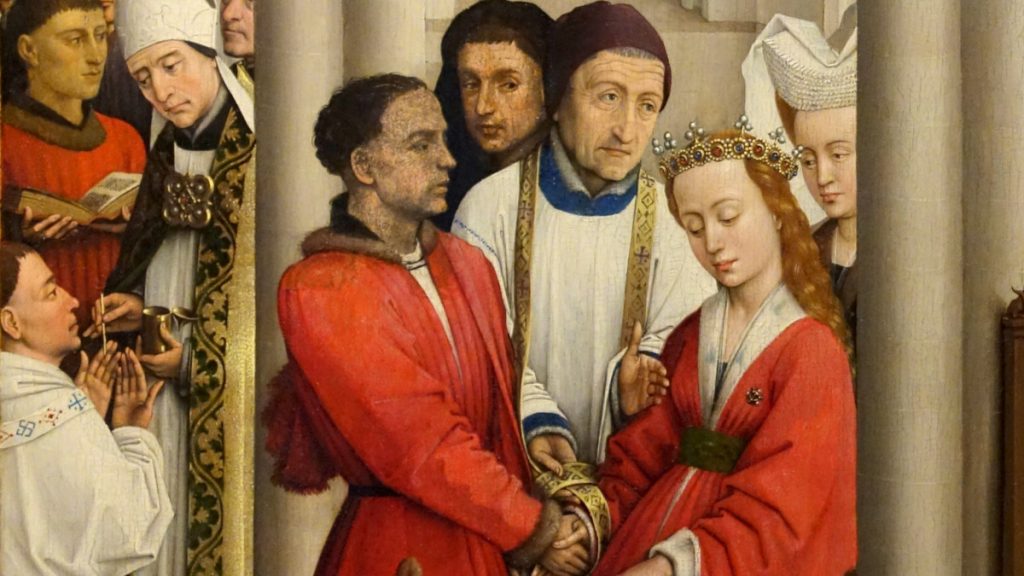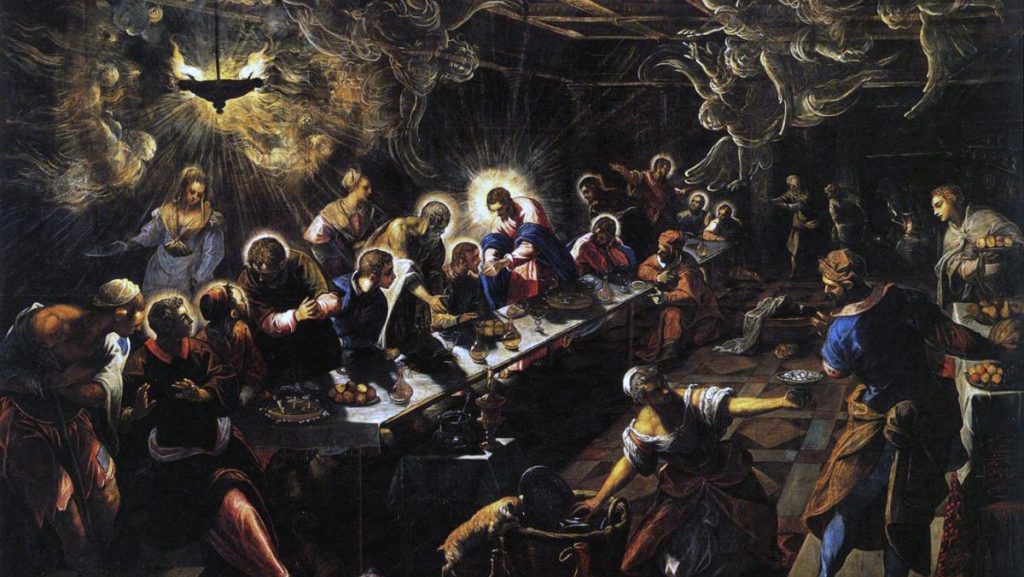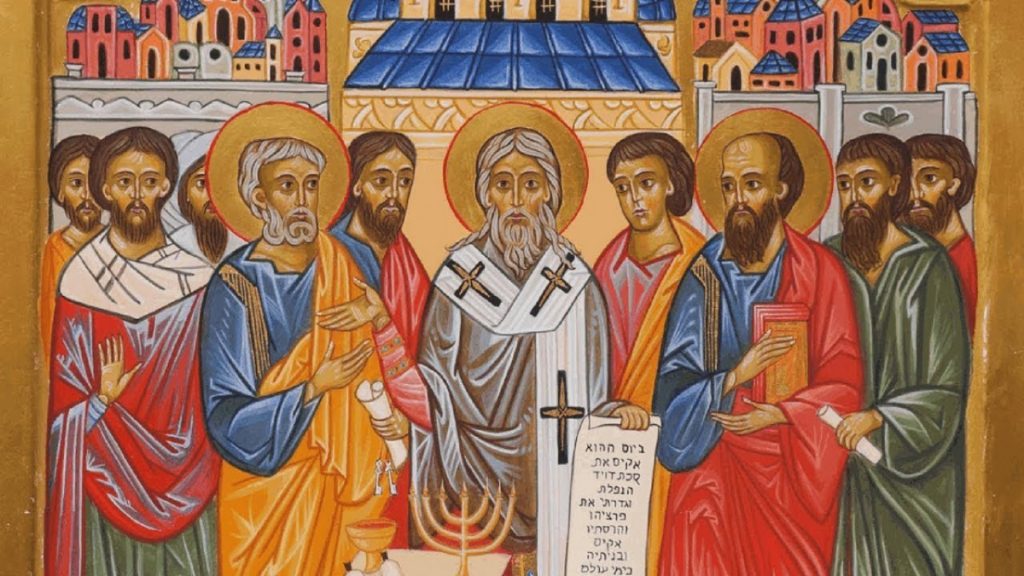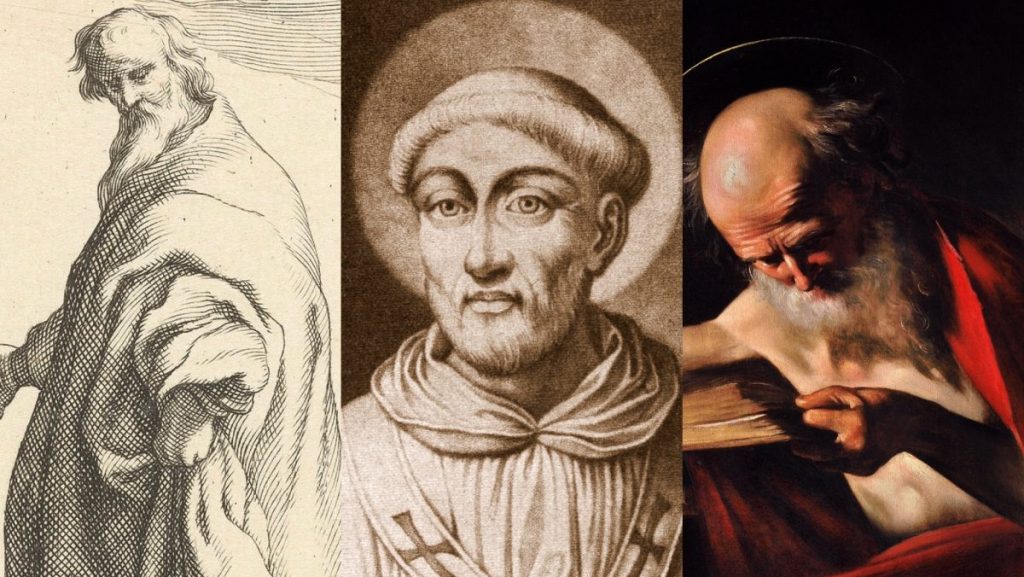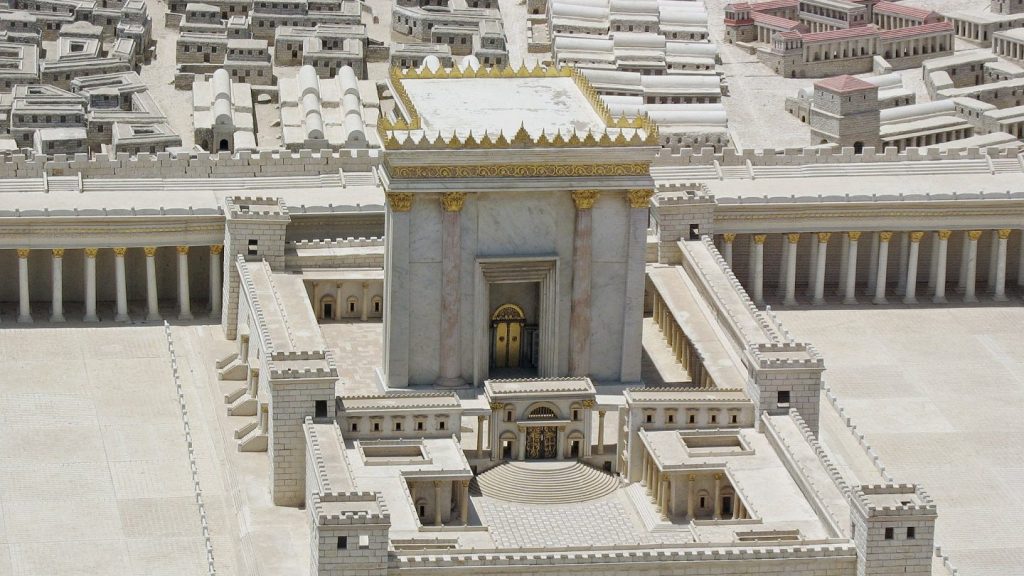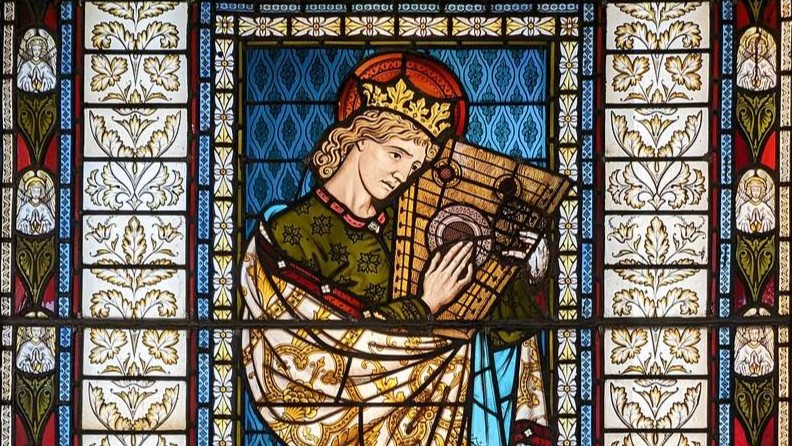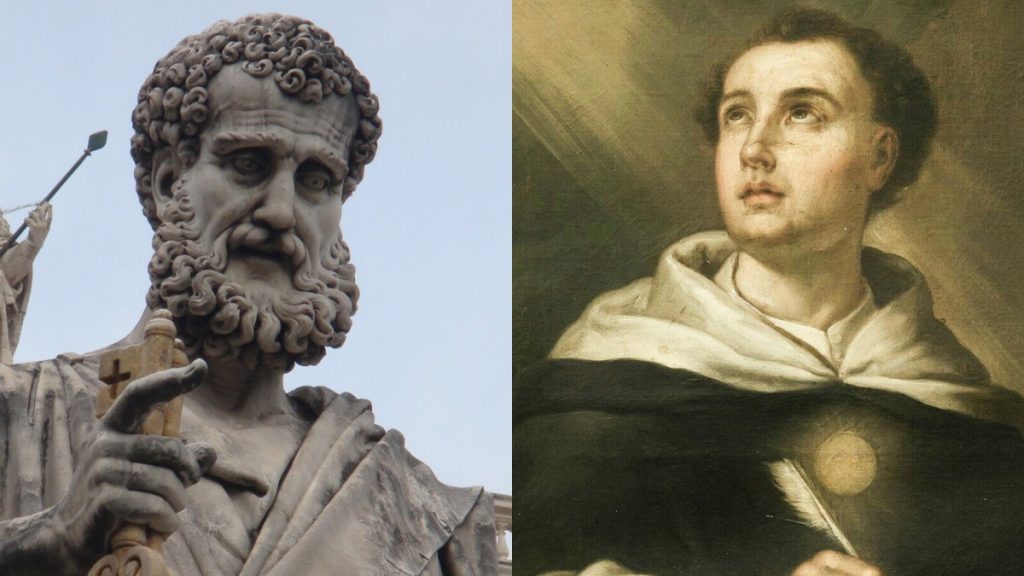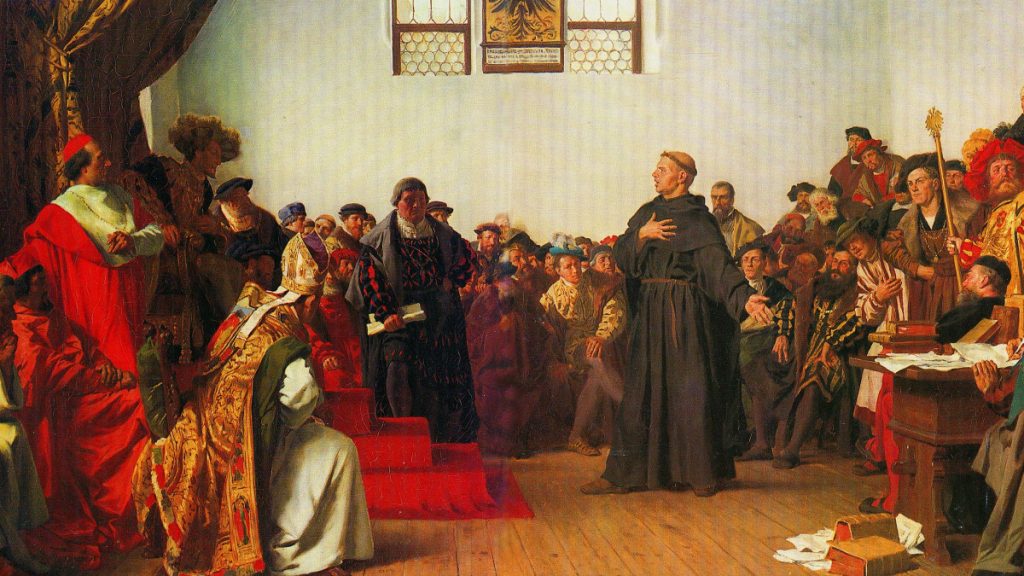(Updated July 17, 2025)
St. Justin Martyr (c. 100-165) | EAST
St. Justin Martyr, Dialogue with Trypho (c. 155)
(§41) …Hence God speaks by the mouth of Malachi, one of the twelve [prophets], as I said before, about the sacrifices at that time presented by you: “I have no pleasure in you, says the Lord; and I will not accept your sacrifices at your hands: for, from the rising of the sun unto the going down of the same, My name has been glorified among the Gentiles, and in every place incense is offered to My name, and a pure offering: for My name is great among the Gentiles, says the Lord: but you profane it” (Mal. 1:10-12). [So] He then speaks of those Gentiles, namely us, who in every place offer sacrifices to Him, i.e., the bread of the Eucharist, and also the cup of the Eucharist, affirming both that we glorify His name, and that you profane [it]…
(§117) Accordingly, God, anticipating all the sacrifices which we offer through this name, and which Jesus the Christ enjoined us to offer, i.e., in the Eucharist of the bread and the cup, and which are presented by Christians in all places throughout the world, bears witness that they are well-pleasing to Him. But He utterly rejects those presented by you and by those priests of yours, saying, “And I will not accept your sacrifices at your hands; for from the rising of the sun to its setting my name is glorified among the Gentiles (He says); but you profane it” (Mal. 1:10-12). Yet even now, in your love of contention, you assert that God does not accept the sacrifices of those who dwelt then in Jerusalem, and were called Israelites; but says that He is pleased with the prayers of the individuals of that nation then dispersed, and calls their prayers sacrifices. Now, that prayers and giving of thanks, when offered by worthy men, are the only perfect and well-pleasing sacrifices to God, I also admit. For such alone Christians have undertaken to offer, and in the remembrance effected by their solid and liquid food, whereby the suffering of the Son of God which He endured is brought to mind, whose name the high priests of your nation and your teachers have caused to be profaned and blasphemed over all the earth. But these filthy garments, which have been put by you on all who have become Christians by the name of Jesus, God shows shall be taken away from us, when He shall raise all men from the dead, and appoint some to be incorruptible, immortal, and free from sorrow in the everlasting and imperishable kingdom; but shall send others away to the everlasting punishment of fire. But as to you and your teachers deceiving yourselves when you interpret what the Scripture says as referring to those of your nation then in dispersion, and maintain that their prayers and sacrifices offered in every place are pure and well-pleasing, learn that you are speaking falsely, and trying by all means to cheat yourselves: for, first of all, not even now does your nation extend from the rising to the setting of the sun, but there are nations among which none of your race ever dwelt. For there is not one single race of men, whether barbarians, or Greeks, or whatever they may be called, nomads, or vagrants, or herdsmen living in tents, among whom prayers and giving of thanks are not offered through the name of the crucified Jesus. And then, as the Scriptures show, at the time when Malachi wrote this, your dispersion over all the earth, which now exists, had not taken place.
St. Irenaeus of Lyon (c. 130-c. 202) | EAST/WEST
St. Irenaeus of Lyon, Against Heresies (c. 180)
Again, giving directions to His disciples to offer to God the first-fruits of His own, created things—not as if He stood in need of them, but that they might be themselves neither unfruitful nor ungrateful—He took that created thing, bread, and gave thanks, and said, “This is My body” (Matt. 26:26, et al). And the cup likewise, which is part of that creation to which we belong, He confessed to be His blood, and taught the new oblation of the new covenant; which the Church receiving from the apostles, offers to God throughout all the world, to Him who gives us as the means of subsistence the first-fruits of His own gifts in the New Testament, concerning which Malachi, among the twelve prophets, thus spoke beforehand: “I have no pleasure in you, says the Lord Omnipotent, and I will not accept sacrifice at your hands. For from the rising of the sun, unto the going down [of the same], My name is glorified among the Gentiles, and in every place incense is offered to My name, and a pure sacrifice; for great is My name among the Gentiles, says the Lord Omnipotent” (Mal. 1:10-11)—indicating in the plainest manner, by these words, that the former people [the Jews] shall indeed cease to make offerings to God, but that in every place sacrifice shall be offered to Him, and that a pure one; and His name is glorified among the Gentiles.
Tertullian (c. 155-c. 220) | WEST
Tertullian, Against Marcion (c. 209)
Forasmuch then as he said, that from the Creator there would come other laws, and other words, and new dispensations of covenants, indicating also that the very sacrifices were to receive higher offices, and that amongst all nations, by Malachi when he says: “I have no pleasure in you, saith the Lord, neither will I accept your sacrifices at your hands. For from the rising of the sun, even unto the going down of the same, my name shall be great among the Gentiles; and in every place a sacrifice is offered unto my name, even a pure offering” (Mal. 1:10-11)—meaning simple prayer from a pure conscience—it is of necessity that every change which comes as the result of innovation, introduces a diversity in those things of which the change is made, from which diversity arises also a contrariety.
St. Augustine (354-430) | WEST
St. Augustine, City of God (c. 413-26)
Malachi, foretelling the Church which we now behold propagated through Christ, says most openly to the Jews, in the person of God, “I have no pleasure in you, and I will not accept a gift at your hand. For from the rising even to the going down of the sun, my name is great among the nations; and in every place sacrifice shall be made, and a pure oblation shall be offered unto my name: for my name shall be great among the nations, saith the Lord” (Mal. 1:10-11). Since we can already see this sacrifice offered to God in every place, from the rising of the sun to his going down, through Christ’s priesthood after the order of Melchizedek, while the Jews, to whom it was said, “I have no pleasure in you, neither will I accept a gift at your hand,” cannot deny that their sacrifice has ceased, why do they still look for another Christ, when they read this in the prophecy, and see it fulfilled, which could not be fulfilled except through Him?
Apostolic Teachings and Constitutions
Didache (c. 50)
(Ch. 14, §§1-3)1
(§1) And on the Lord’s Day, after you have come together, break bread and offer the Eucharist, having first confessed your offenses, so that your sacrifice may be pure. (§2) But let no one who has a quarrel with his neighbor join you until he is reconciled, lest your sacrifice be defiled [Matt. 5:23-24]. (§3) For it was 182 | 183 said by the Lord: “In every place and time let there be offered to me a clean sacrifice, because I am the great king”; and also: “and my name is wonderful among the Gentiles” (Mal. 1:11, 14).
